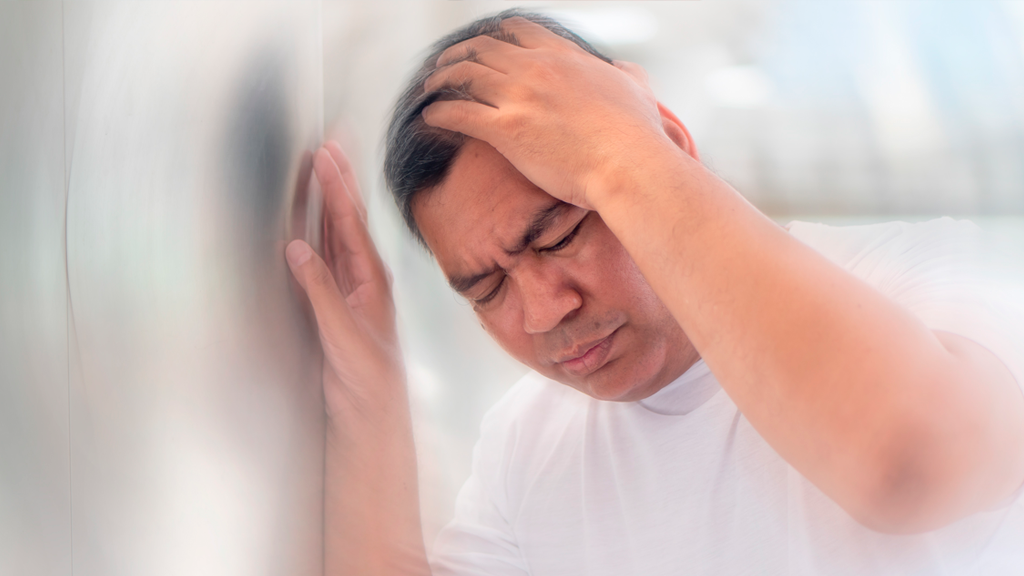Vertigo
Vertigo
Feeling dizzy, off-balance, or like the room is spinning? You might be experiencing vertigo—a condition that can disrupt your daily life and make even simple movements feel unsafe or unsettling. At Theracave, we help people find relief from vertigo and regain steady footing through evidence-based physical therapy.
Vertigo is a sensation of spinning, tilting, or dizziness that occurs even when you’re standing still. It’s often linked to problems in the inner ear or nervous system that affect your sense of balance. While it can feel alarming, vertigo is treatable—and many people find lasting relief with the right therapy.

Causes Of Vertigo:
Triggered by changes in head position due to loose crystals in the inner ear
Inner ear infections or inflammation
A condition involving fluid buildup in the inner ear
Dizziness related to migraine attacks
Symptoms Of Vertigo:
How Theracave Helps With Vertigo:
At Theracave, we take a hands-on, movement-focused approach to vertigo recovery. Using techniques proven to retrain the vestibular system, we help restore your sense of balance and reduce symptoms over time.
We assess your balance, head and eye movement, posture, and history of symptoms
Such as the Epley maneuver to treat BPPV
To reduce your fall risk and increase confidence in daily movement
Adjusted as your symptoms improve
Q&A
What is Vertigo?
Vertigo is a term used to describe the combination of dizziness and mental cloudiness, often associated with vertigo. It can make daily activities challenging due to the sensation of spinning and difficulty concentrating.
What are the common causes of Vertigo?
Common causes include inner ear infections, vestibular migraines, Meniere’s disease, and head injuries. It can also be related to anxiety and stress.
What are the symptoms of Vertigo?
Symptoms include a spinning sensation, dizziness, balance issues, nausea, headaches, and difficulty focusing or thinking clearly.
How is Vertigo diagnosed?
Diagnosis typically involves a thorough medical history, physical examination, and possibly tests such as MRI, CT scans, or vestibular function tests to determine the underlying cause.
What treatments are available for Vertigo?
Treatments vary based on the underlying cause and may include vestibular rehabilitation therapy, medication, dietary changes, and stress management techniques.
Can physical therapy help with Vertigo?
Yes, physical therapy, especially vestibular rehabilitation therapy, can help improve balance, reduce dizziness, and alleviate symptoms associated with Vertigo.
How long does it take to recover from Vertigo?
Recovery time varies depending on the cause and severity of symptoms. Some people may see improvement in a few weeks, while others may take several months.
Can Vertigo be prevented?
While it may not always be preventable, managing stress, staying active, and following any treatment plans for underlying conditions can help reduce the frequency and severity of episodes.
What Customers Are Saying
Our Process
How It Works?
Reach out to us via our online form or call to schedule an initial assessment.
Evaluation
Based on your unique needs, we develop a tailored therapy program.
Plan
Our professionals guide you through each session, focusing on effective rehabilitation.

